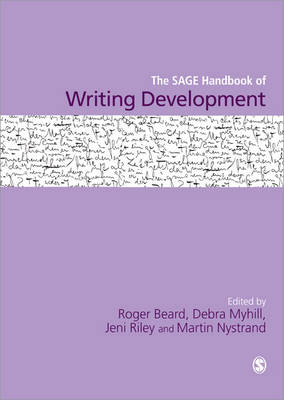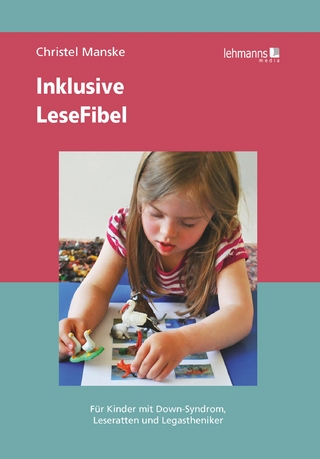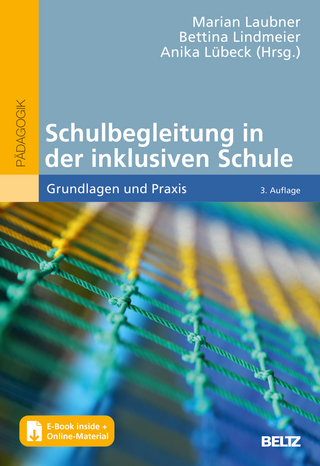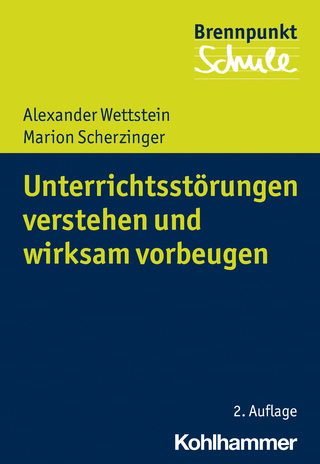
The SAGE Handbook of Writing Development
SAGE Publications Inc (Verlag)
978-1-4129-4846-3 (ISBN)
Writing development is currently the focus of substantial international debate because it is the aspect of literacy education that has been least responsive to central government and state reforms. Teaching approaches in writing have been slower to change than those in teaching reading and pupil attainment in writing has increased at a much more modest rate than pupil attainment in reading.
This handbook critically examines research and theoretical issues that impact on writing development from the early years through to adulthood. It provides those researching or teaching literacy with one of the most academically authoritative and comprehensive works in the field. With expert contributors from across the world, the book represents a detailed and valuable overview of a complex area of study.
I taught in primary schools, a college of higher education and at Leeds University before becoming Professor of Primary Education at the Institute of Education, where I was Head of the Department of Early Childhood and Primary Education 2005-2010. My particular interests are literacy and teachereducation. Debra Myhill is Professor of Education at the University of Exeter, UK, and Director of the Centre for Research in Writing, which promotes inter-disciplinary research, drawing on psychological, socio-cultural and linguistic perspectives on writing. Her research interests focus principally on writing and the teaching of writing, particularly linguistic and metalinguistic development, the composing processes involved in writing, the talk-writing relationship, and creative writing. Underpinning this research is the principle that literacy, especially writing, is a pathway to empowerment. Over the past twenty years, she has led a series of research projects in these areas, in both primary and secondary schools. Key Publications Chen, H. Myhill, D. A and Lewis, H. (2020) Developing writers across primary and secondary years: Growing into Writing. London: Routledge Jeni Riley is Head of School of Early Childhood and Primary Education at the Institute of Education, University of London. Martin Nystrand (Ph.D., Northwestern University) is LOUISE DURHAM MEAD PROFESSOR OF ENGLISH at the University of Wisconsin-Madison. His research focuses on the dialogic organization of discourse in both writing and classroom discourse. His writing research examines how writing-reader interaction shapes the writer’s writing process and development: The Structure of Written Communication: Studies in Reciprocity Between Writers and Readers (Academic Press, 1986). His classroom discourse research, in collaboration with Adam Gamoran, probes the role of classroom interaction in student learning and was the first empirical study to document the role of open classroom discussion in student learning: Opening Dialogue: Understanding the Dynamics of Language and Learning in the English Classroom (Teachers College Press, 1997). His study, “Questions in Time: Investigating the Structure and Dynamics of Unfolding Classroom Discourse” (with L. Wu, A. Gamoran, S. Zeiser, D. Long, Discourse Processes, 35 (2003), 135-196) is the first-ever use of event-history analysis to investigate classroom discourse. Nystrand is a former director of the National Research Center on English Learning & Achievement (CELA), editor of Written Communication, and president of both the National Conference on Research in Language and Literacy (NCRLL) and the American Education Research Association (AERA) Special Interest Group (SIG) for Writing Research. At Wisconsin, he has also been a Vilas Associate and, since 1994, a member of the Teaching Academy. He teaches undergraduate courses in composition and English education and graduate courses and seminars in Composition and Rhetoric, a program he chairs. His most recent book, coedited with John Duffy, is Towards a Rhetoric of Everyday Life: New Directions in Research on Writing, Text, and Discourse (University of Wisconsin Press, 2003). He is currently working on The Semiotics of Influence, a sociocultural history of composition studies investigating the history and social context of empirical writing research as it unfolded in North America during the 1970s & ’80s.
General Introduction
The History of Writing - David R. Olson
INTRODUCTION TO SECTION 1
Modelling the Development of Written Composition - Denis Alamargot and Michel Fayol
Writing about What We Know: Generating Ideas in Writing - David Galbraith
From Idea to Text - John R. Hayes
Revision Processes - Lucile Chanquoy
A Sociocultural Framework: Writing as Social Practice - Triantafillia Kostouli
Developing Discourse Roles and Positionings - An Ecological Theory of Writing Development - Jon Smidt
Writing: A Critical Literacy Perspective - Hilary Janks
Multiple Literacies and Multi-literacies - Brian V. Street
Writing As Linguistic Mastery: The Development of Genre-based Literacy Pedagogy - David Rose
Writing in a Multimodal World of Representation - Gunther Kress and Jeff Bezemer
Grammar and Writing - The International Debate - Terry Locke
How Linguistics Can Inform the Teaching of Writing - Craig Hancock
INTRODUCTION TO SECTION 2
Early Written Communication - Deborah Wells Rowe
Writing in Childhood Worlds - Anne Haas Dyson
Agency and Platform: The relationships between talk and writing - Judy Parr, Rebecca Jesson and Stuart McNaughton
Learning to Use Alphabetic Writing - Charles Read
Developing an Understanding of Punctuation - Nigel Hall and Sue Sing
The Critical Role Handwriting Plays in the Ability to Produce High-Quality Written Text - Carol A. Christensen
Engaging and Motivating Children to Write - Pietro Boscolo
Writing and Popular Culture - Jackie Marsh
INTRODUCTION TO SECTION 3
Morphemes and Children′s Spelling - Peter Bryant and Terezinha Nunes
Measuring Maturity - Richard Hudson
The Architecture of Textuality: A Semiotic View of Composing in and out of School - Peter Smagorinsky
The Content of Students′ Writing - Brenton Doecke and Douglas McClenaghan
Creativity and Constraint: Developing as a Writer of Poetry - Anthony Wilson
Becoming a Designer: Trajectories of Linguistic Development - Debra Myhill
Writing through College: Self-efficacy and Instruction - Ellen Lavelle
Toward a New Understanding for Classroom Writing Assessment - Brian Huot and Jeff Perry
The Role of Readers in Writing Development: Writing Students Bringing Their Texts to the Test - Gert Rijlaarsdam, Martine Braaksma, Michel Couzijn, Tanja Janssen, Marleen Kieft, Mariet Raedts, Elke van Steendam, Anne Toorenaar and Huub van den Bergh
INTRODUCTION TO SECTION 4
The Expansion of Second Language Writing - Paul Kei Matsuda, Christina Ortmeier-Hooper and Aya Matsuda
Meeting the Needs of Advanced Multilingual Writers - Suresh Canagarajah and Maria Jerskey
Causes of Delays and Difficulties in the Production of Written Text - Julie Dockrell
The Contested Materialities of Writing in Digital Environments: Implications for Writing Development - Doreen Starke-Meyerring
Hypertext and Writing - Christina Haas and Chad Wickman
Developing Writing in a High-Stakes Environment - Marian Sainsbury
Writing in the Wider Community - Beverly J. Moss
Reflections on the Future of Writing Development - Robert Gundlach
| Erscheint lt. Verlag | 9.7.2009 |
|---|---|
| Verlagsort | Thousand Oaks |
| Sprache | englisch |
| Maße | 184 x 246 mm |
| Gewicht | 1260 g |
| Themenwelt | Sozialwissenschaften ► Pädagogik ► Schulpädagogik / Grundschule |
| ISBN-10 | 1-4129-4846-0 / 1412948460 |
| ISBN-13 | 978-1-4129-4846-3 / 9781412948463 |
| Zustand | Neuware |
| Haben Sie eine Frage zum Produkt? |
aus dem Bereich


